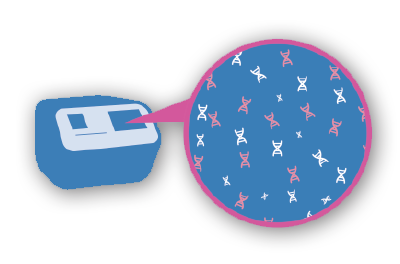The Science Behind NIFTY™
Cell-free DNA fragments (cfDNA) are short fragments of DNA, which can be found circulating in the blood. During pregnancy, cfDNA fragments originating from both the mother and fetus are present in the maternal blood circulation.
The NIFTY™ test requires taking a small maternal blood sample cfDNA in the maternal blood is then analysed with our proprietary genetic sequencing technology and bioinformatics pipelines to screen for any chromosomal abnormality in the fetus.


What does NIFTY™ screen for?
- NIFTY™ screens for the three most common trisomy conditions present at birth which are Down Syndrome, Edwards Syndrome and Patau Syndrome. Independent validation studies, including the world’s largest study on the use of NIPT in clinical practice in nearly 147,000 women, have shown NIFTY™ has an accuracy rate of over 99% for detection of these conditions.
- NIFTY™ also offers optional testing for other genetic conditions such as deletion syndromes and sex chromosome aneuploidies. If you choose to know, NIFTY™ can also provide gender information.
- Remember, it’s always important to consult a qualified healthcare professional before taking any genetic test to make sure you fully understand the conditions being tested for.
